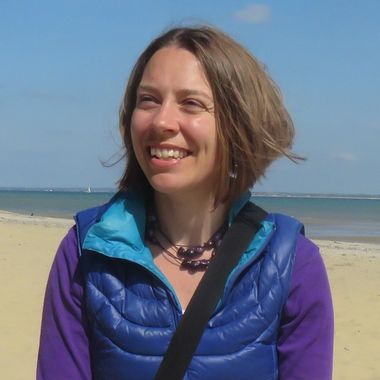Speakers





4.20pm – 4.40pm BST, 8 October 2025 ‐ 20 mins
Case Studies






Research Application Manager, The Alan Turing Institute
Sophie is an AI/ML Applications Manager focused on environmental forecasting, with a broader interest in AI for Earth observation. Trained in computational cognitive neuroscience, she used to apply machine learning to neuroimaging and human behaviour data during her PhD and postdoctoral research. In industry, she has helped build a deep tech product at a mobile tech start-up. At the Alan Turing Institute’s Digital Twins cluster, she supported open, reproducible tooling around assurance for digital twin systems. She now works within the Alan Turing Institute’s Environment & Sustainability Grand Challenge, building sea ice forecasting pipelines with a cross-functional team. Sophie is passionate about turning cutting-edge AI/ML research into decision-fit prototypes by pinning down the metrics that matter and matching the right tools to the right problems.

Deputy Science Leader of the AI Lab, British Antarctic Survey
Dr Jonathan Smith is the Deputy Science Leader of the AI Lab at the British Antarctic Survey (BAS) and leads a team in developing AI systems for decision support in marine planning. The AI decision support systems allows operational planning experts to tap into cutting edge solutions that define ways to coordinate large fleets of ships and autonomous vehicles to maximise data collection whilst minimise carbon cost. On top of this work BAS is developing cutting edge machine learning solutions for marine vessel optimal route planning in changing environmental solutions and forecasting of environmental variables (e.g. Sea-Ice). Prior to joining BAS Jonathan was an invited research fellow at California Institute of Technology, and during this position he developed cutting edge machine learning software for the real-time monitoring of Southern California earthquakes.

Head of Applied Fisheries Research, CEFAS
Tom is the Head of Applied Fisheries Research at Cefas. He is responsible for providing scientific and policy advice to government institutes including the UK Department of Environment Food and Rural Affairs (Defra). He is an active member of the International Council for the Exploration of the Seas (ICES), was a member of the EU Commission's Scientific, Technical and Economic Committee on Fisheries (STECF) prior to EU exit and Strategic Marine Policy Advisor to the UK Secretary of State for the Environment from 2020-22. Tom has extensive experience in participating and leading national and international research projects to better understand the interactions between commercial fishing activities and the marine environment with the aim to enhance the sustainability of fishing. This work is done in collaboration with many other partners, including science institutes, Universities, NGOs, and particularly the fishing industry.
Coastal Oceanographer, National Oceanography Centre
Prof. Jenny Brown is a coastal oceanographer for the UK’s National Oceanography Centre, with expertise in wave, surge, tidal and storm impact modelling. More recently she has become involved with technology development to validate model capability and collect datasets to train Artificial Intelligence to better forecast coastal hazards. Her current research is focused on new wave overtopping hazard monitoring and prediction systems to support coastal management decisions and asses the resilience of coastal schemes as we move towards adaptive management solutions.
Senior Lecturer, University of Exeter
Ajit Pillai is a Royal Academy of Engineering Research Fellow and Senior Lecturer at the University of Exeter. His research focuses on developing and deploying optimization algorithms and machine learning techniques to support the design and operation of offshore renewable energy systems. Through his ongoing fellowship, he is creating methods that integrate high-fidelity numerical models with targeted, dynamic measurement campaigns using autonomous vessels to improve marine safety and operational decision-making. This work aims to reduce environmental uncertainty and establish a novel spatial data framework for the marine environment.
Ajit has contributed to research projects applying optimization, machine learning, and advanced hydrodynamic modelling to offshore systems. His recent work includes metocean forecasting, offshore wind farm layout optimization, mooring system design, and the use of autonomous platforms for data collection. His research interests lie in combining digital tools and physical modelling to accelerate innovation in offshore renewables.